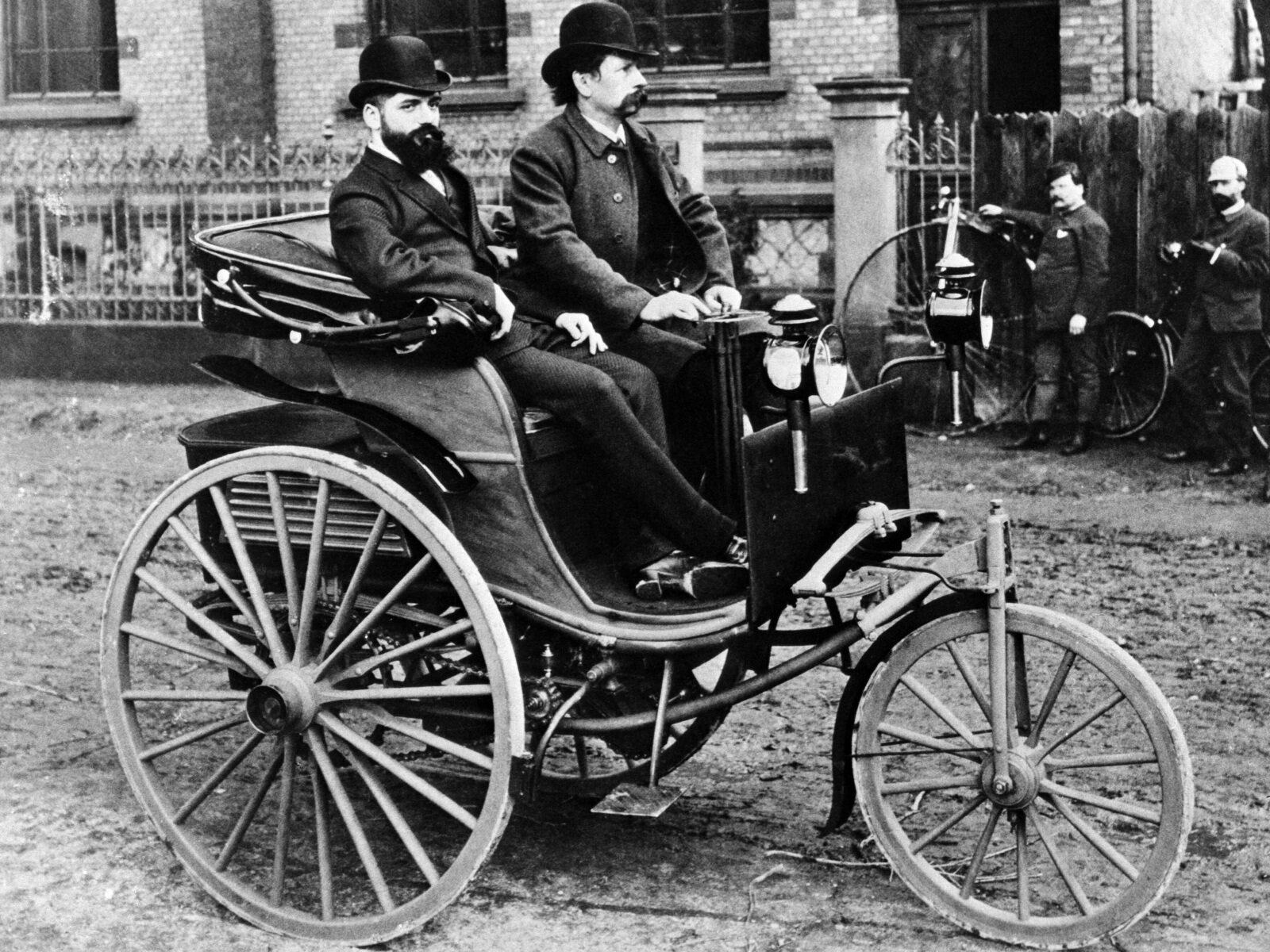When we think of luxury, innovation, and automotive excellence, one name that consistently stands out is Mercedes-Benz. But how did this iconic brand come into existence? The journey of Mercedes-Benz is not just the story of a car company; it’s the tale of two visionary engineers, Karl Benz and Gottlieb Daimler, whose pioneering work laid the foundation for what would become one of the most prestigious automotive brands in the world.
The Fascinating History and Evolution of Mercedes-Benz
The story of Mercedes-Benz begins with two pioneering figures in the automotive industry: Karl Benz and Gottlieb Daimler. In the late 19th century, both men independently made significant contributions to the development of the automobile. Karl Benz, born in 1844, is credited with creating the first true automobile, the Benz Patent-Motorwagen, in 18861. This three-wheeled vehicle was powered by an internal combustion engine and marked a revolutionary step in personal transportation.Gottlieb Daimler, born in 1834, along with his partner Wilhelm Maybach, developed the first high-speed petrol engine in 18852. This engine was compact and powerful, making it suitable for use in vehicles. Daimler’s innovations laid the groundwork for the modern automobile engine.

Early Innovations
Karl Benz’s Patent-Motorwagen is often considered the first automobile. It featured a single-cylinder four-stroke engine and was capable of reaching speeds up to 16 km/h1. Benz’s wife, Bertha Benz, famously undertook the first long-distance automobile journey in 1888, demonstrating the vehicle’s practicality.
Meanwhile, Daimler and Maybach’s development of the high-speed petrol engine led to the creation of the Daimler Motor Carriage in 18862. This vehicle was the first to use a four-wheeled design and a petrol engine, setting the stage for future automotive designs.

Merger and Formation of Mercedes-Benz
Despite their groundbreaking work, Karl Benz and Gottlieb Daimler never met in their lifetimes. However, their companies—Benz & Cie. and Daimler-Motoren-Gesellschaft (DMG)—would eventually come together In 1926, the companies founded by Karl Benz and Gottlieb Daimler merged to form Daimler-Benz AG3. This merger combined the strengths of both pioneers and led to the creation of the Mercedes-Benz brand. The name “Mercedes” was derived from a successful line of cars produced by DMG (Daimler-Motoren-Gesellschaft) and named after Mercedes Jellinek, the daughter of an influential automobile dealer.
Evolution of the Brand: A Legacy of Excellence
Over the decades, Mercedes-Benz has introduced numerous iconic models and technological advancements. The Mercedes-Benz S-Class, introduced in the 1970s, set new standards for luxury and safety in the automotive industry4. The SL-Class, known for its sporty design and performance, became a symbol of elegance and innovation.
Technological advancements such as the introduction of anti-lock braking systems (ABS), airbags, and electronic stability control (ESC) have cemented Mercedes-Benz’s reputation as a leader in automotive safety and innovation4.
Mercedes-Benz continued to push the boundaries of automotive engineering.

Cultural Impact
Mercedes-Benz has had a profound influence on popular culture and luxury branding. The brand’s vehicles are often associated with prestige, success, and sophistication. From appearances in movies and music videos to being the car of choice for celebrities and dignitaries, Mercedes-Benz has become a symbol of luxury and status
Corporate Developments
Throughout its history, Mercedes-Benz has faced various challenges, including economic downturns and technological shifts. The company has consistently adapted by expanding its product lineup, entering new markets, and investing in research and development. The introduction of electric vehicles, such as the EQ series, showcases Mercedes-Benz’s commitment to sustainability and innovation.
Current Position and Future Outlook
Today, Mercedes-Benz remains a dominant force in the automotive industry. The brand continues to innovate with advancements in electric and autonomous vehicle technology. With a strong focus on sustainability, Mercedes-Benz aims to lead the transition to a greener future while maintaining its legacy of luxury and performance.
Brand Philosophy
At its core, Mercedes-Benz embodies a philosophy of “The Best or Nothing”. This commitment to excellence is reflected in every aspect of the brand, from engineering and design to customer service and corporate responsibility. Mercedes-Benz strives to create vehicles that not only meet but exceed the expectations of their customers, ensuring a driving experience that is unparalleled in quality and innovation.
By tracing the origins, innovations, and evolution of Mercedes-Benz, we can appreciate the brand’s significant impact on the automotive industry and its enduring legacy of excellence.
